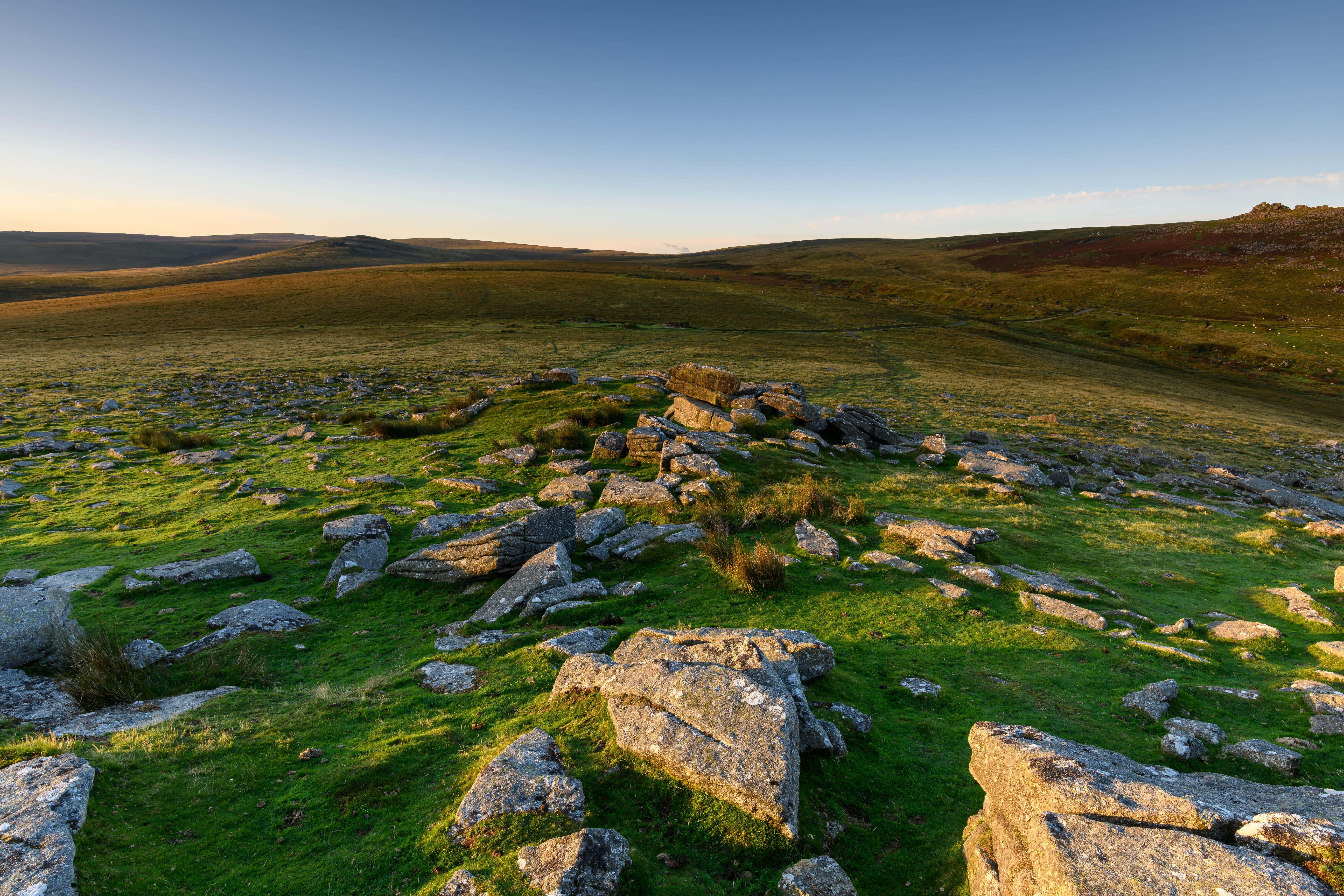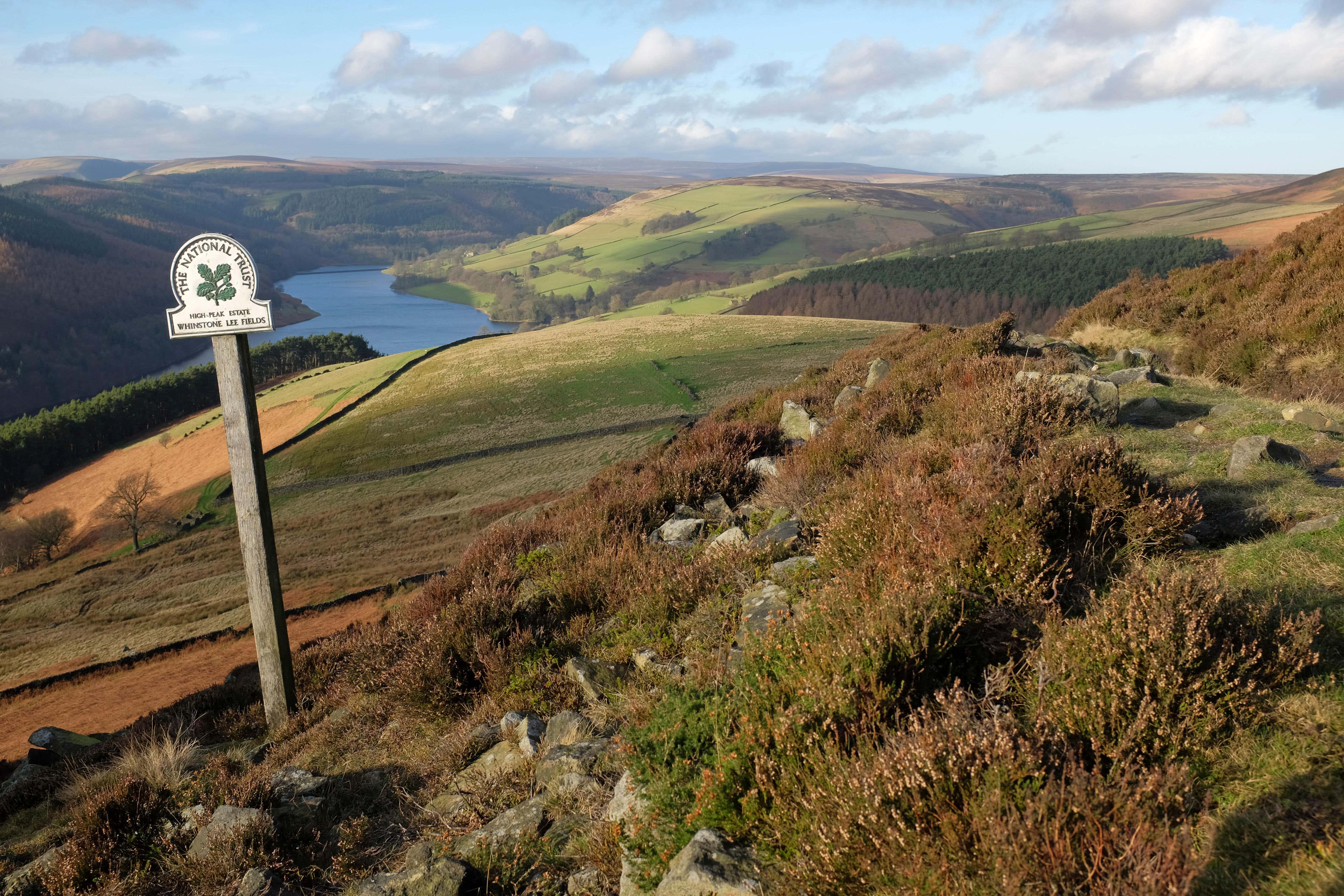Hundreds to stage mass trespass in Dartmoor to protest blocked off beauty spots
Mass trespass to take place this Saturday as campaigners demand the right to roam freely across England

Hundreds of angry walkers will take part in “the largest mass trespass in a generation” to protest being shut out of thousands of beauty spots.
The trespass, planned for Vixen Tor in Devon on 24 February, will cross a section of private land to get to a piece of land that has a right of access but that currently no-one can get to without trespassing.
Campaign group the Right to Roam said there were around 2,500 of these ‘access islands’ in England where the public have a right to roam, but no legal right to get to them - many of these sites can only be accessed by trespassing.
It is said to be the biggest mass trespass since protesters descended on Kinder Scout over 90 years ago, which made way for establishing right-to-roam legislation.
The issue has arisen because of the way England’s partial right to roam was created. The Countryside and Rights of Way Act (2000) gave people a right to roam over certain landscape types – mountains, moorland, heathland, downland and commons – covering some 8 per cent of England.
These landscape types are known as “access land”.
But many of these landscapes are highly fragmented – much of England’s downland, for example, was ploughed up for agriculture after the Second World War. This means that in some situations, access islands are stranded within a “sea” of other landscape types where the public has no legal right to walk.
Over the border in Scotland, ‘access islands’ do not exist with walkers able to roam freely, campaigners added.
Lewis Winks, from the Right to Roam group, said: “The absurdity of access islands is a clear example of why our current system of access rights in England is broken.
“Often people don’t know where they have a right to go in the countryside.”

Victoria Vyvyan, the Country Land and Business Association president, told the BBC: “Nobody is forced to trespass. It is a choice and millions of acres of land are publicly accessible without the need to do so.”
Instead, she says the government should help farmers and land managers implement infrastructure to ease land access.
Stuart Cox, known as the Peak District Viking posted on Facebook: “Utterly ridiculous in this day and age. We should be able to roam where we want. It works in Scandinavia and Scotland so why not here?”
The trespass will start at the wall that separates open access and private land and attendees have been invited to creatively imagine how they will travel to the island.
Performers and musicians will be bringing a large boat to symbolically “sail” to the island, while participants have been asked to think of creative ways they will travel.
Throughout the emphasis will be on drawing attention to the absurdity of “access islands”.
Mr Winks added: “It’s ridiculous that the public have to trespass to reach these fragments of land where they have a legal right to roam – all because of our piecemeal approach to access in this country.
“There are no access islands in Scotland, however, which created a default right of access to most land and water in 2003, to be exercised responsibly and subject to sensible exemptions and rules.
“With political parties pledging to increase access to nature in England it’s vital they learn from the mistakes of the past, and look instead to follow successful examples like Scotland.”
Join our commenting forum
Join thought-provoking conversations, follow other Independent readers and see their replies
Comments
Bookmark popover
Removed from bookmarks